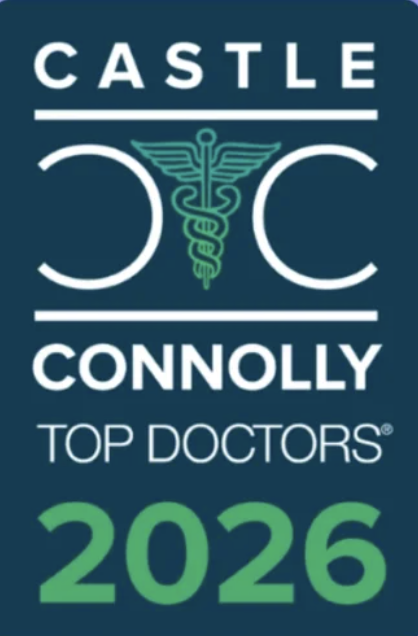By Jordan Stern, MD and Justin Zaghi, MD
About the authors:
Jordan Stern, MD, Founder and CEO of BlueSleep, is a Head and Neck surgeon, a subspecialty of Ear, Nose and Throat (ENT or Otolaryngology), who has treated over 15,000 Sleep Apnea patients and published multiple studies on the diagnosis and treatment of Sleep Apnea. He is also the author of The New York Times bestselling book, Dropping Acid, about reducing acid reflux through a better diet.
Justin Zaghi, MD, Founder and CEO of Shapely, is a board-certified internal medicine physician who has helped thousands of patients along their weight loss journey. Dr. Zaghi attended college at UCLA and graduated from Harvard University, earning MD and MBA degrees.
There’s a Health Crisis in America
As innovative medical providers who care about promoting wellness and ultimately saving lives, we teamed up to help more people lose weight and stop sleep apnea using clinically-proven, FDA-approved methods. The health problem is huge and growing…
- 40% of Americans are obese.
- 50% of obese people have Sleep Apnea.
- 20% of Americans will die prematurely due to Obesity & Sleep Apnea.
How are Weight and Sleep Apnea Connected?
Fat deposits in the upper respiratory tract narrow the airway making breathing difficult when asleep. The tell-tale signs are loud snoring and/or waking up gasping for air. The blockage of air leads to a decrease in oxygen to body tissues and blood vessels. The lack of oxygen ultimately has devastating effects on the body and mind, leading in many cases to heart disease, hypertension, and diabetes, as well as excessive tiredness, anxiety, depression and lack of sexual vigor.
Two Proven Solutions: Losing Weight and Controlling Sleep Apnea
We created BlueSleep and Shapely to provide patients with fast and affordable solutions. Patients coming to either online medical clinic can be fast tracked for weight loss and Sleep Apnea care offered by board-certified Specialists.
BlueSleep gets you sleeping better by specializing in the diagnosis and treatment of sleep apnea via telemedicine – same-day consultations, home sleep tests, CPAP and oral appliance therapy. And, BlueSleep is in-network with most national health plans thereby eliminating the costly barrier to treatment.
Shapely provides online weight management through a combination of lifestyle changes, a tailored nutrition program, and weight loss medications such as Wegovy, Ozempic, Zepbound, and Mounjaro, among others. Patients can choose amongst monthly subscription models based on their individual needs and budget, all accessible via Shapely’s digital platform.
Get an Action Plan for Sleep Apnea
If you’re overweight and/or suffering from daytime sleepiness, associated with poor quality sleep and snoring, then we recommend the following:
- Make a telemedicine appointment at BlueSleep.
- Take an easy Home Sleep Test if recommended by our specialists.
- Get a Mandibular Advancement Device (a mouth guard to treat snoring and sleep apnea) or CPAP to reduce snoring and control Sleep Apnea.
- Take another Home Sleep Test (if necessary) after three months of treatment to measure your improvement.
Get an Action Plan for Weight Loss
If you’re looking to lose weight, eat better, and improve your overall wellness, then take action today.
- Make a video appointment at Shapely.
- Select a monthly plan that suits your needs.
- Discuss your weight and medical history with your Shapely provider.
- If appropriate, receive weight loss medications such as Ozempic, Wegovy, Mounjaro, or Zepbound.
- Meet monthly with your provider to track progress, get dietary advice and achieve success.
Medical Research & References
Obesity, Sleep Apnea and Hypertension - AHA Journals
Obesity has a high and rising prevalence and represents a major public health problem. Obstructive sleep apnea (OSA) is also common, affecting an estimated 15 million Americans, with a prevalence that is probably also rising as a consequence of increasing obesity.
The Complex Relationship Between Weight and Sleep Apnoea - BMJ Journals
Obesity has long been recognised as the most important reversible risk factor for obstructive sleep apnoea (OSA). Analyses from the Wisconsin Sleep Cohort Study suggest that 41% of adult OSA cases, including 58% of moderate-to-severe cases, are attributable to overweight or obesity. As such, weight loss has long been recommended as an ancillary treatment for OSA. Longitudinal analyses from the Sleep Heart Health Study support the notion that weight loss is associated with improvements in OSA severity.
Approach the Patient With Obstructive Sleep Apnea and Obesity - JCEM
Obstructive sleep apnea (OSA) and obesity are highly prevalent and bidirectionally associated. OSA is underrecognized, however, particularly in women. By mechanisms that overlap with those of obesity, OSA increases the risk of developing, or having poor outcomes from, comorbid chronic disorders and impairs quality of life.
We found a simple mathematical relationship between BMI and AHI: for every 1-point drop in BMI (corresponding to 5–8 pounds, depending on a person’s height), AHI decreases by 6.2%. And limiting BMI to 25–40 kg/m2 (which includes about 80% of the BMIs), then AHI drops by 7.1%. Simply put as a rule of thumb: For every 7-pounds drop in weight, expect a 7% drop in AHI.
To our knowledge, this is the first simple mathematical equation that associates the severity of weight with the severity of apnea in veterans. This equation can be a practical rule of thumb that can be implemented in clinics to predict the amount of weight a patient needs to lose to decrease their apnea, which might help motivate patients to lose weight.













